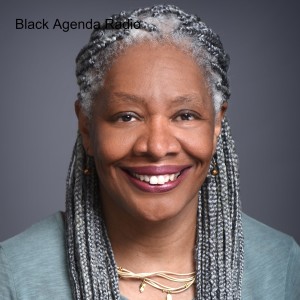
Welcome to the radio magazine that brings you news, commentary
and analysis from a Black Left perspective. I’m Margaret Kimberley, along with
my co-host Glen Ford. Coming up: Which way is the reparations struggle going?
There is still no consensus among Black Americans on what the United States
must pay for centuries of slavery and oppression. And, Chicago is the city where
community control of the police is closest to becoming a reality. We’ll get an
update from a local activist.
But first – The United States government last week seized the website of the
Iranian news service Press TV and three dozen of that country’s other internet
outlets, claiming the sites were spreading “disinformation.” What gives
Washington the right to roam the planet, shutting down other nations’ information
services? We posed that question to Ajamu Baraka, national organizer for the
Black Alliance for Peace.
That was Ajamu Baraka, national organizer wth the Black Alliance
for Peace.
In recent years, increasing numbers of white people have come to favor some
form of reparations for the harm Black Americans suffered under centuries of
slavery and discrimination. But there is still no consensus among Black people
on what kind of reparations should be demanded from the United States. Efia
Nwangaza is director of the Malcolm X Center for Self-Determination, in
Greenville, South Carolina, and a longtime reparations advocate. Nwangaza is
trying to pull reparations supporters together in her state.
That was Efia Nwangaza, at the Malcolm X Center for Self-
Determination, in Greenville, South Carolina.
In Chicago, a majority of the board of aldermen now support community control
of the police. Jasman Salas is co-chair of the Chicago chapter of the National
Alliance Against Racist and Political Repression, the organization that is
spearheading the effort. Salas says women and trans people would greatly
benefit from community control of the cops
More Episodes
 2020-01-06
2020-01-06
 3.9k
3.9k
 2019-12-30
2019-12-30
 3.7k
3.7k
 2019-12-23
2019-12-23
 3.9k
3.9k
 2019-12-16
2019-12-16
 3.9k
3.9k
 2019-12-09
2019-12-09
 4.1k
4.1k
 2019-12-02
2019-12-02
 4.2k
4.2k
 2019-11-25
2019-11-25
 3.8k
3.8k
 2019-11-18
2019-11-18
 4.1k
4.1k
 2019-11-11
2019-11-11
 4.1k
4.1k
 2019-11-04
2019-11-04
 4.1k
4.1k
 2019-10-21
2019-10-21
 4.8k
4.8k
 2019-10-14
2019-10-14
 4.2k
4.2k
 2019-10-07
2019-10-07
 4.1k
4.1k
 2019-09-30
2019-09-30
 4.1k
4.1k
 2019-09-23
2019-09-23
 4.1k
4.1k
 2019-09-16
2019-09-16
 3.0k
3.0k
 2019-09-09
2019-09-09
 4.2k
4.2k
 2019-09-03
2019-09-03
 3.9k
3.9k
 2019-08-26
2019-08-26
 4.2k
4.2k
 2019-08-19
2019-08-19
 4.1k
4.1k
Create your
podcast in
minutes
- Full-featured podcast site
- Unlimited storage and bandwidth
- Comprehensive podcast stats
- Distribute to Apple Podcasts, Spotify, and more
- Make money with your podcast
It is Free
- Privacy Policy
- Cookie Policy
- Terms of Use
- Consent Preferences
- Copyright © 2015-2024 Podbean.com





